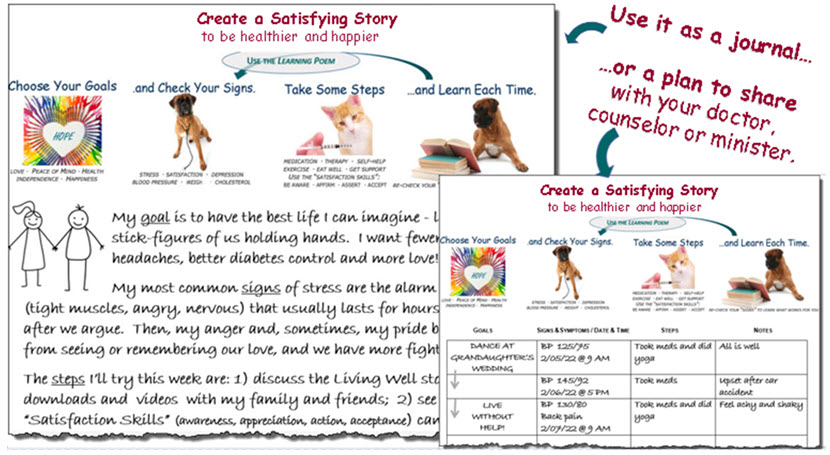To stay updated about the upcoming launch of Living Well, please send an email to tdeloughry@CaringTeams.org to be placed on our mailing list
You can download a free PDF of Caregiver Stories and Stress Solutions by clicking on the link below. Print copies can be purchased through Amazon.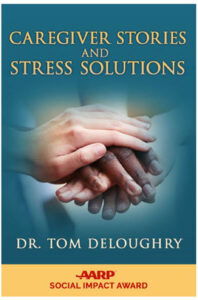
This 60 page book with 10 short stories and dozens of strategies to help caregivers was honored by AARPs Social Impact Award as “a simple mind-body-spirit program for seniors, adults and teens of any faith or no faith.
To determine if Living Well is a good fit for your organization, please share this webpage, plus the following documents and videos with others in your organization, and with those you serve.
- Living Well Overview – a two minute video
- Caregiver Stories and Stress Solutions
- Less Stress, Better Health and More Love
- a workbook that accompanies Caregiver Stories with many additional strategies, worksheets and topics
- this Creative Commons content can be shared, improved or integrated into your current training by you or your organization without seeking prior permission
- Living Well flyer .for professionals
The following online courses will be offered later this year, drawing on the content from:
- the Caregiver Stories and Stress Solutions book
- the Less Stress, Better Health and More Love workbook
- Spirituality and Eldercare
- This is Tom’s chapter in a Templeton Press nursing textbook (edited by Harold Koenig and Verna Carson)
- It uses
- -health perspective to describe our Niagara County collaboration (i.e., Office for the Aging; Health Department; Mental Health Association, Niagara Caregivers Network, Health Association of Niagara County) which was honored with AARP’s Social Impact Award.
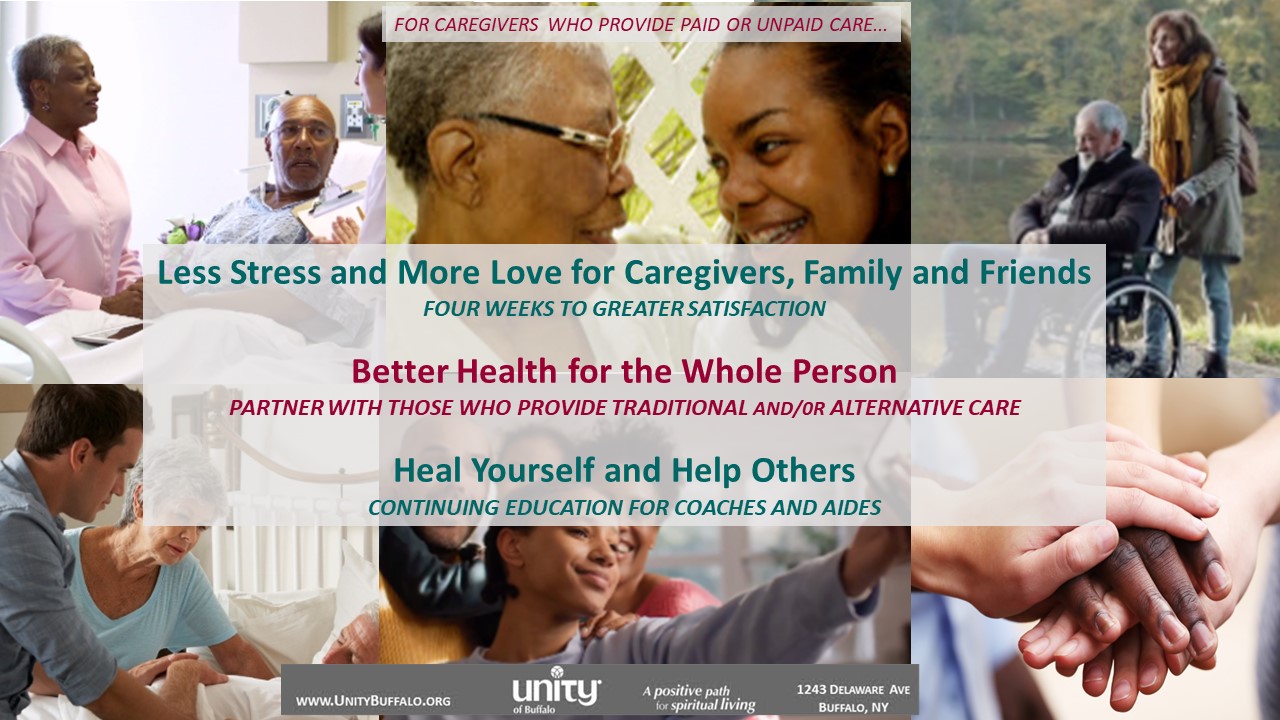
Heal Yourself and Help Others focuses on mandated topics (e.g., communications, care planning, patient needs) that are part of the 10 hour annual training that is mandated by Medicare and Medicaid
- Communication, satisfaction as well as the quality and outcomes of care are bound to improve when aides, caregivers, patients, volunteers and professionals are encouraged to used the same skills and strategies to help others that have helped the “helpers” to have less stress, better health and more love.
VIDEOS, STORY-TELLING AND JOURNALING
Our courses rely heavily on videos and story-telling – because nearly half of Americans have difficulty reading health education materials.
- Wellness is More than What Medicine Can Measure
-
-
- The above video introduces some of successes and stumbles that Tom experienced, as told in the Caregiver Stories book (i.e., My Mother, What I Wish I Knew; I Know why I Got Sick). Stories are also used to stimulate family and small group discussion in the online courses and training workshops..
-
-
- End of Life Care Planning
-
- The above video tells about the tough choices Kathy faced with her brothers and sister as her mother neared death from Alzheimer’s disease.
- Tom’s guilt about remaining silent just before his mother’s death is told in The Liturgy Nazi. It is also used to stimulate discussions about “tunnel vision” (how feeling stressed or feeling bad causes you to see just the bad in yourself and others…and make a bad decision.
- “Waiting ‘Till Spring is a fictional story that asks: Is the person who loves you the most, always the best person to choose as your health care proxy, if you’re unable to speak for yourself?
Use a journal to learn from your own experience, and collaborate more closely with those who provide your medical, emotional, spiritual, community and complementary care.
Spirituality, Love and Forgiveness
The spiritual component of the Wellness Puzzle focuses on love as “a sense of oneness or connectedness.” This is illustrated by the Golden Rule, which is a core teaching of all major faiths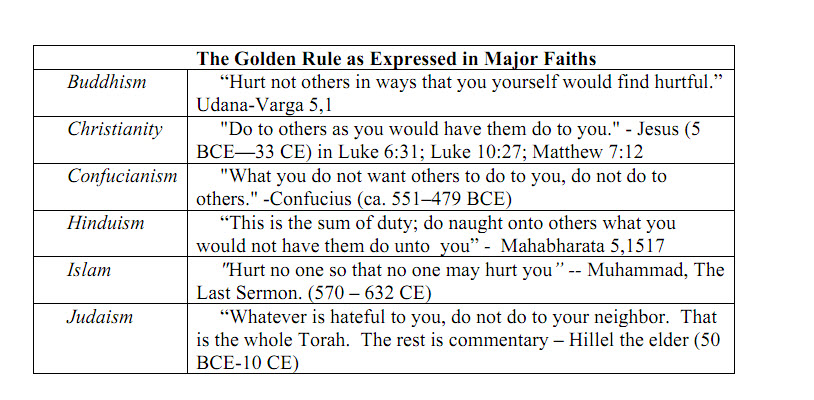
Living Well emphasizes the related value of volunteering as expressed in two short stories and other content presented on pages 8-13 in Caregiver Stories.
The importance of love and connectedness is also express in a discussion of the Social Determinants of Care, presented on page 22 of the Less Stress, Better Health and More Love workbook.
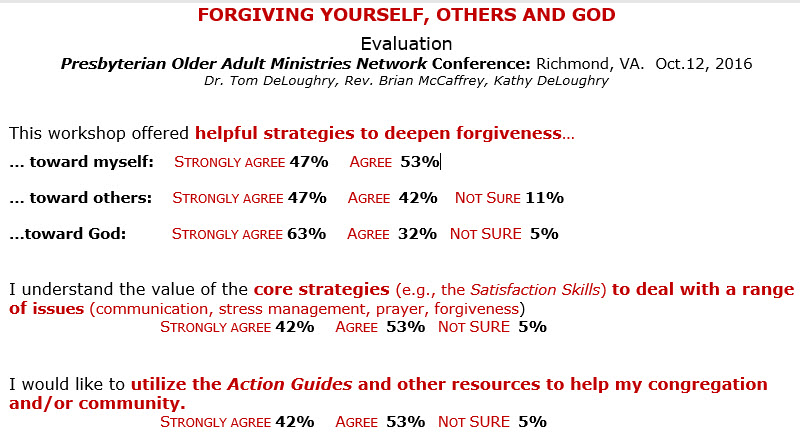
To help your organization get started with Living Well:
- Send a link to this page to those in your organization who might be interested. For example, in:
- health care: include quality improvement, human resources, training, marketing, member services, patient representatives, professionals and paraprofessionals
- faith communities: include the minister, the board, and active volunteers
- community agencies: include your directors, human resources, board members and marketing
- mental health: include your directors, human resources, marketing and therapists to discuss the “Satisfaction Skills” as a cognitive-behavioral tool-kit
2. Schedule a Zoom or in-person meeting to discuss options with Dr. Tom DeLoughry (716-909-9612 – tdeloughry@gmail.com) The agenda for this 15 – 60 minute meeting might include:
-
-
- Overview of Living Well as a “whole person” program that integrates traditional and complementary care, while engaging everyone in the quality improvement process
- integrating Living Well materials with your current education or training materials
- Cost of courses, training and/or consultation
- Tentatively, the cost for the first two classes (see below) is $40 for the general public. Those with financial difficulties can request a scholarship coupon reducing the cost of each class to $10
- There will be discounts for bulk purchase of any course for an entire organization (i.e., 10 or more).
- A portion of course revenue will be donated to Unity of Buffalo. It will be used to create a mini-grant program to stimulate community interest and program evolution through the creation of related art, poetry, stories, songs, illustrations and more.
-
3. Finalize timelines, benchmarks, responsibilities and reporting/certification requirements, etc.
